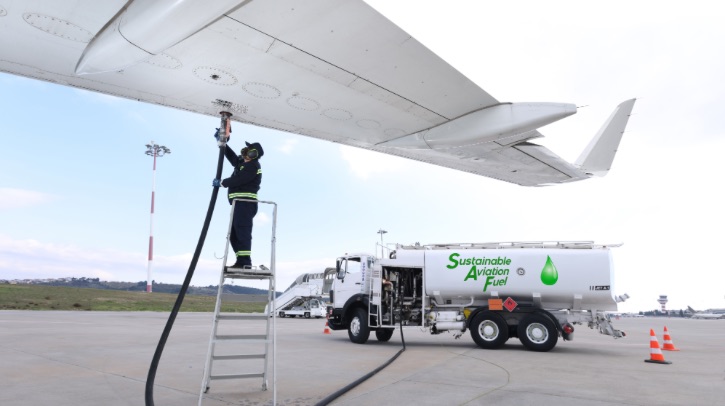UK Aviation Minister Mike Kane has announced the 17 UK companies that will share the £63m (US$85m) Advanced Fuels Fund to accelerate the production of sustainable aviation fuel (SAF) and support 1,400 jobs in the UK.
Britain’s green aviation market
According to the minister, low-carbon fuel production could add up to £5bn (US$7bn) to the economy by 2050. The investment is intended to secure Britain’s position as the global leader in the green aviation market and provide the clean fuel to realize sustainable growth in the aviation sector.
This latest investment means the government has so far provided £198m (US$267m) through the Advanced Fuels Fund (AFF) to scale up cleaner aviation technologies. Creating a clean aviation ecosystem is projected to help power the next generation of airport infrastructure and capacity scale-up, kickstarting economic growth and delivering the UK’s ambitions to be a clean energy superpower and deliver on the Plan for Change.
Kane stated, “This £63m is lift-off for Britain’s green aviation revolution. We’re not just backing brilliant British innovation, we’re creating thousands of highly skilled jobs and positioning the UK at the forefront of the global sustainable aviation market. From the labs of Sheffield to the runways of the future, this is how we kickstart economic growth, secure energy independence and make Britain a clean energy superpower.”
Advanced Fuels Fund winners
The AFF winners are spread across the country, and include OXCCU Tech, which is developing a demonstration plant at Oxford Airport, and LanzaJet, which is building a commercial-scale plant in Teesside.
Announcing the new funding at the University of Sheffield’s Energy Innovation Centre – which received £1.5m (US$2m) in this latest round – Kane saw firsthand the work on aircraft engine testbeds and revolutionary aviation fuels.
Prof. Mohamed Pourkashanian, managing director of the University of Sheffield’s Energy Innovation Centre, said, “It is fantastic to see the University of Sheffield playing a leading role in the development of sustainable aviation fuel and supporting the aviation industry in its efforts to reduce its emissions. At Sheffield, we have some of the most advanced SAF research facilities in Europe and are excited to work with partners from the industry to help them test and develop new fuels and next-generation clean energy technologies.”
Andrew Symes, CEO and co-founder of OXCCU, added, “Support from the Advanced Fuels Fund is a key step in scaling our technology. This funding enables the detailed design and construction of OX2, our demonstration plant launching in 2026, and builds on the successful delivery of OX1. It brings us closer to producing lower-cost, lower-carbon aviation fuel and supports the UK’s ambition to become a global leader in SAF production.”
Jimmy Samartzis, CEO of LanzaJet, commented, “We’re proud that Project Speedbird, developed in partnership with British Airways, has been recognized by the Department for Transport as part of its continued commitment to advancing SAF in the UK. This support demonstrates confidence in LanzaJet’s technology and the critical role ethanol-to-SAF can play in delivering economic growth, creating jobs and decarbonizing air travel. Project Speedbird is vital to building a national SAF industry in the UK and to unlocking opportunity and innovation in the region. We thank DfT for its leadership and vision in accelerating the transition to net zero aviation.”

